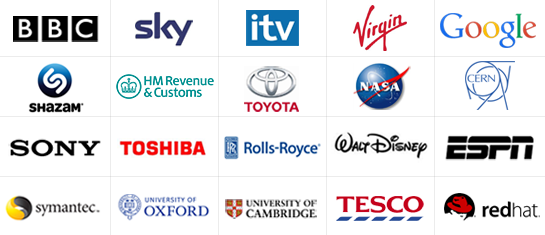 The concept was developed in the super data centres owned by Google and Facebook to maximise the computing power and reduce the TCO of server and storage inventory when they realised they no longer wanted to buy the standard hardware from the likes of DELL and HP with all of the Plastic fronts, paint, mounting rails and screws that add to the weight, reduce the airflow / cooling and increase the cost.
The concept was developed in the super data centres owned by Google and Facebook to maximise the computing power and reduce the TCO of server and storage inventory when they realised they no longer wanted to buy the standard hardware from the likes of DELL and HP with all of the Plastic fronts, paint, mounting rails and screws that add to the weight, reduce the airflow / cooling and increase the cost.

The Open Stacked rack concept is based on a modified 19” rack server, the sides are removed and the cabinets tend to be open framed. The servers themselves are often open, without lids and are mounted with-out the standard rail kit - in the large data centre the servers are often mounted on a tray that slides into the rack and plugs directly into PSUs that are mounted into the framework of the rack.
A significant part of the power used by a server goes towards driving the cooling fans, so a great deal of the design work was centred around having a platform that could accommodate larger cooling fans that could spin at significantly lower speeds to achieve the same air flow thus reducing the power requirements and the costs to power the fans, the power saving is substantial - for a standard 1U Server, the power consumption is between 10 and 20% of the overall power consumption, the open stacked / open framed servers with the larger fans consume only 2-4% of the total server power requirements.
Broadberry Data Systems have teamed up with Quanta to integrate a range of server and storage solutions designed for the Open Stacked / Open Racked or Cloud Computing market
Quanta STRATOS S910-X31B Open Rack Server

High Efficient, Dependable, and Intelligent 3U Microserver
Up to 9 or 12 server nodes sharing a compact 3U chassis, the Quanta STRATOS S910-X31B is the most advanced microserver built upon Intel Xeon processor E3-1200/E3-1200 v2 product family. It takes full advantage of Intel’s latest 22nm-manufacturing technology, delivering dramatic efficiency of power, cooling, space, and cost savings as well as intelligent and dependable performance to run all day, every day with access to online resources and critical business data.
It has 4 times the computing density of 3 traditional one-socket 1U servers stacked together. With its specific multi-node design, the S910-X31B is optimised for the applications of dedicated hosting, front-end web, content delivery networks (CDN), and cloud computing.
Simplify, No Compromise
The features of S910-X31B are simplified, and it gets everything to just meet specific needs of small and medium businesses & datacenters. One Quanta S910-X31B microserver contains 9 or 12 server nodes which are cable-free, hot-pluggable and independently operative.
Each node is powered by one Intel Xeon processor E3-1200/E3-1200 v2 product family, supporting up to 69 Watt (12-node SKU) and 95 Watt (9-node SKU) TDPs, 32GB of memory, two 3.5" or four 2.5" internal SAS/SATA hard drives, and two GbE RJ45 ports. The 9-node version provides more flexibility and scalability with one PCIe G2/G3 x8 expansion slot for SAS or 10GbE SFP+ capability in each server node.


Manageability
All server nodes can share one console port and two 10GbE SFP+ ports for uplink via an optional switch board. Besides, comparing to other solutions’ isolated management design, Quanta’s Microserver requires the user only to attach one network cable on a dedicated management port to manage all nodes.
Quanta’s innovative internal Ethernet switching board and integrated management design not only greatly simplify the cable management and make the remote management much easier for datacenters, but also reduce the OPEX & CAPEX by eliminating extra Top-of-Rack switch & network cable equipment needs.
Everything Goes Efficient
9 or 12 server nodes of S910-X31B share components including fans, power supplies, and Ethernet switch in a Quanta X3 3U chassis, the STRATOS S910-X31B dramatically lowers power consumption and increases heat dissipation. The shared infrastructure design makes it especially right-sized for power, space, and performance intensive datacenter environments. Therefore, the microserver not only largely cuts cost, but also dramatically saves energy, datacenter floor space, and cabling to achieve greater performance/watt, performance/dollar, and performance/ft3 compared to traditional 1U 1-socket servers.
Specifications
| SKU | S910-X31B (12 nodes) | S910-X31B (9 nodes) |
| Form Factor (LxWxH) | X3 (3U Chassis) 758mm x 447mm x 130.8mm 29.8" x 17.6" x 5.1" |
|
| MB Size ( W x L) | 254mm x 119.4mm 10" x 4.7" |
|
| Processor | (1) Intel® Xeon® processor E3-1200/ E3-1200 v2 family per node, up to 69W | (1) Intel® Xeon® processor E3-1200/ E3-1200 v2 family per node, up to 95W |
| Chipset | Intel® C204 chipset | |
| SAS Controller | NA |
Quanta LSI SAS 2308 mezzanine card (optional) |
| Memory | (4) DDR3 1333/1600 MHz ECC VLP ECC UDIMM slots per node | (4) DDR3 1333/1600 MHz ECC UDIMM slots per node |
| Storage | (2) 3.5" or (4) 2.5" fixed SATA HDDs per node | (2) 3.5" or (4) 2.5" fixed SATA/SAS HDDs per node |
| PCIe Expansion Slot | NA | (1) PCIe x8 G2/G3 slot for Quanta LSI SAS/RAID or 10GbE SFP+ mezzanine card per node Note: G3 Only supports on processor E3-1200 v2 family |
| SW RAID Options | [Intel® SW RAID] <2.5"> Intel® C204 RAID 0/1/10/5 <3.5"> Intel® C204 RAID 0/1 |
[Intel® SW RAID] <2.5"> Intel® C204 RAID 0/1/10/5 <3.5"> Intel® C204 RAID 0/1 or [LSI SW RAID] Quanta LSI SAS 2308 mezzanine card for RAID 0/1/10 (optional) |
| Network | (2) Intel® I350 GbE RJ 45 ports per node, share NIC 10/100 Mbps for management on NIC1 (2) 10GbE SFP+ ports for uplink on chassis via a system switch board (optional) |
(2) Intel® I350 GbE RJ 45 ports per node, share NIC 10/100 Mbps for management on NIC1 (1) Quanta 10GbE SFP+ single port mezzanine card per node (optional) (2) 10GbE SFP+ ports for uplink on chassis via a system switch board (optional) |
| Management Port | (1) Dedicated 10/100 BASE-T RJ45 management port on chassis | |
| Integrated Graphics (BMC) | Aspeed AST2050 8MB DDR2 video memory | |
| Front I/O | (2) USB 2.0 + (1) VGA (by Y cable) per node (2) GbE RJ45 ports per node (1) 10/100 BASE-T RJ45 management port on chassis (1) Console port + (2) 10GbE SFP+ ports for uplink on chassis via a switch board (optional) |
(2) USB 2.0 + (1) VGA (by Y cable) per node (2) GbE RJ45 ports per node (1) 10GbE SFP+ port per node (optional) (1) 10/100 BASE-T RJ45 management port on chassis (1) Console port + (2) 10GbE SFP+ ports for uplink on chassis via a switch board (optional) |
| Power Supply | (2) high efficiency redundant PSU ,80+ Platinum@230VAC (meet EPA, CSCI) ; 1200W @ 200-240VAC, 1000W@100-127 VAC, 50/60Hz | |
| TPM | Yes (optional) | |
| RoHS | Yes | |
| Intel Node Management support |
Yes | |
| System Management | IPMI v2.0 compliant, on board "KVM over IP" support | |

 Our Rigorous Testing
Our Rigorous Testing Un-Equaled Flexibility
Un-Equaled Flexibility


 Call Our UK Sales Team Now
Call Our UK Sales Team Now